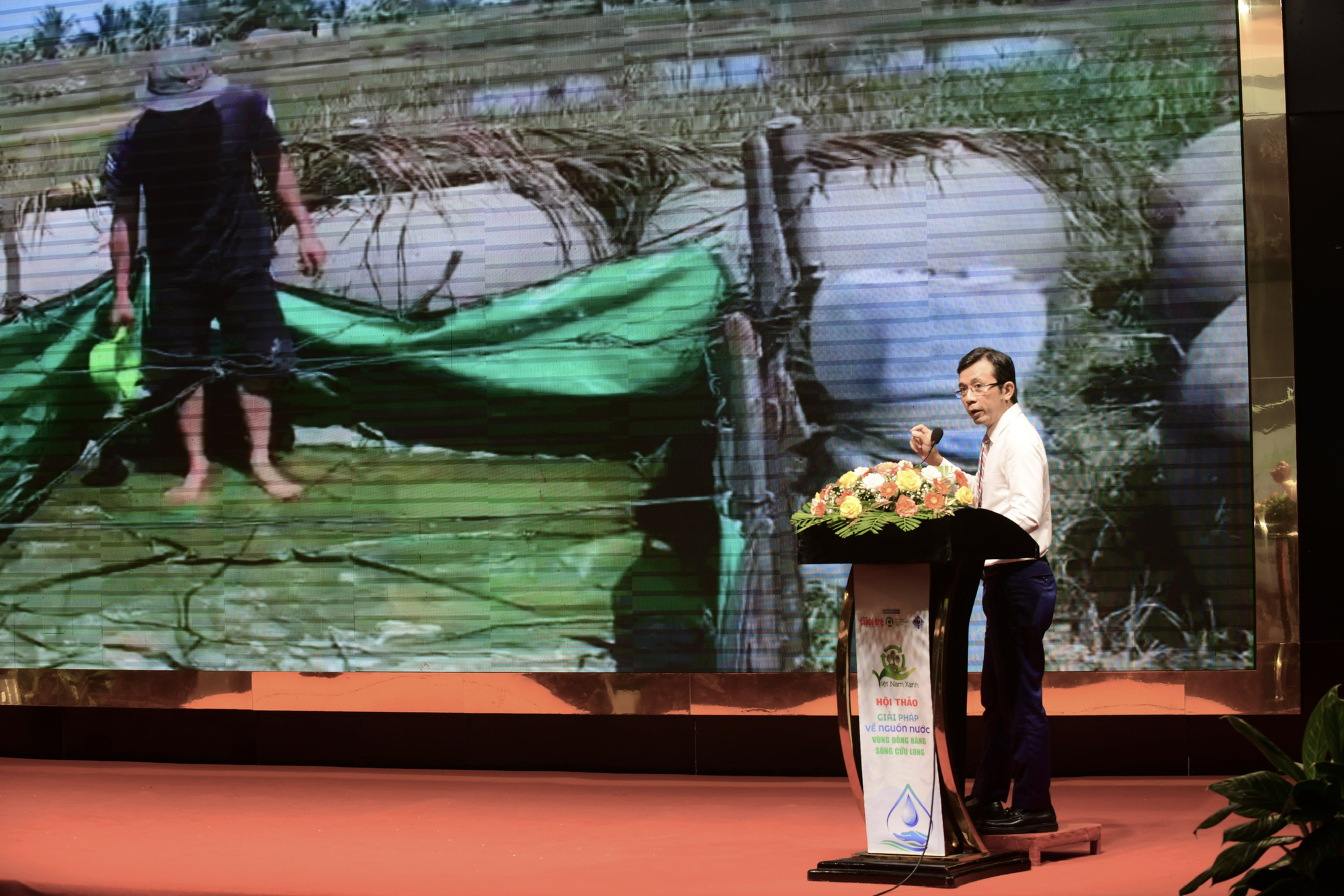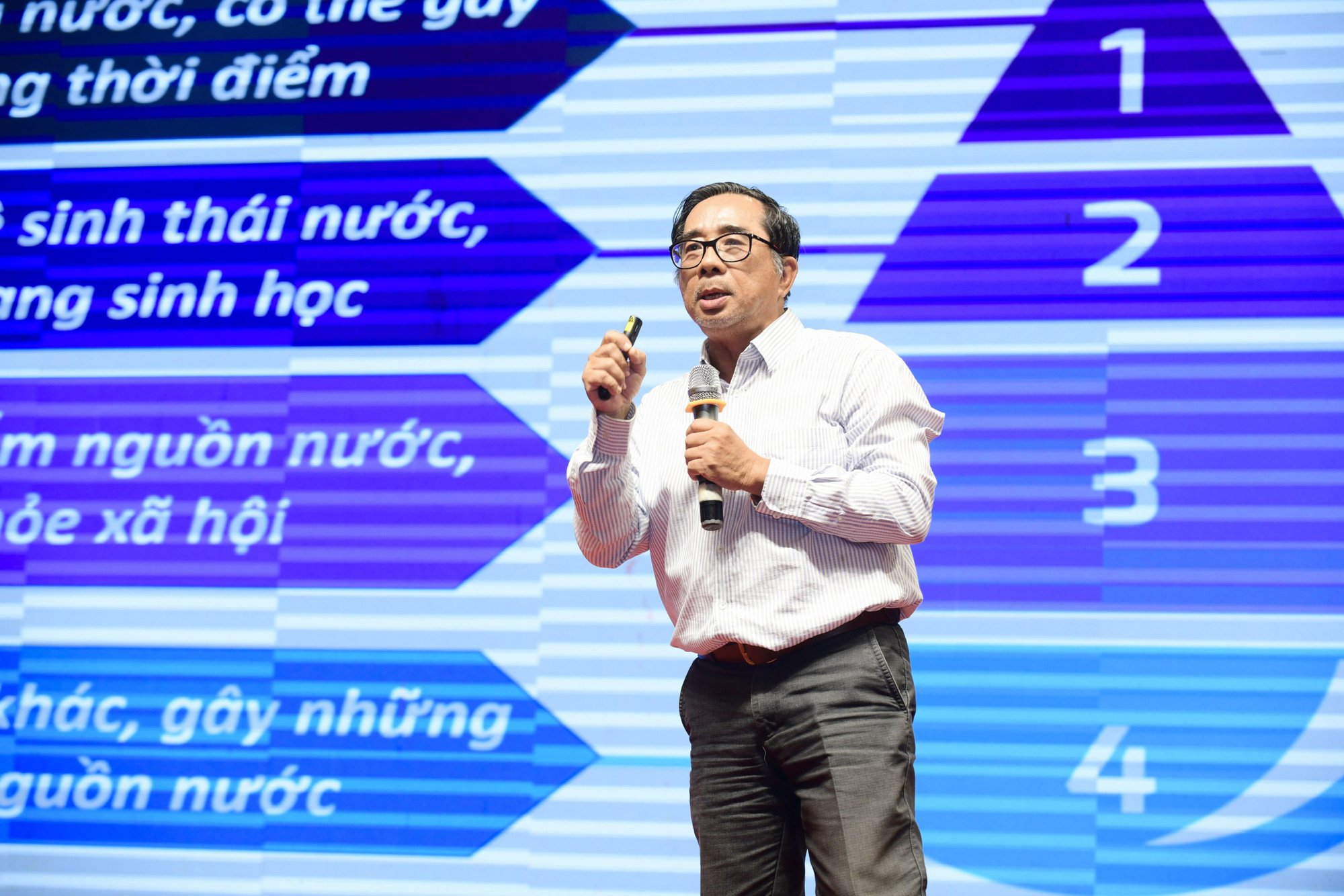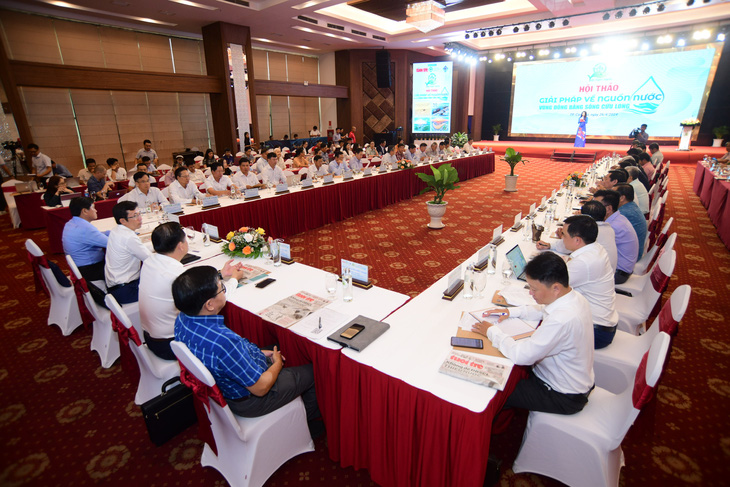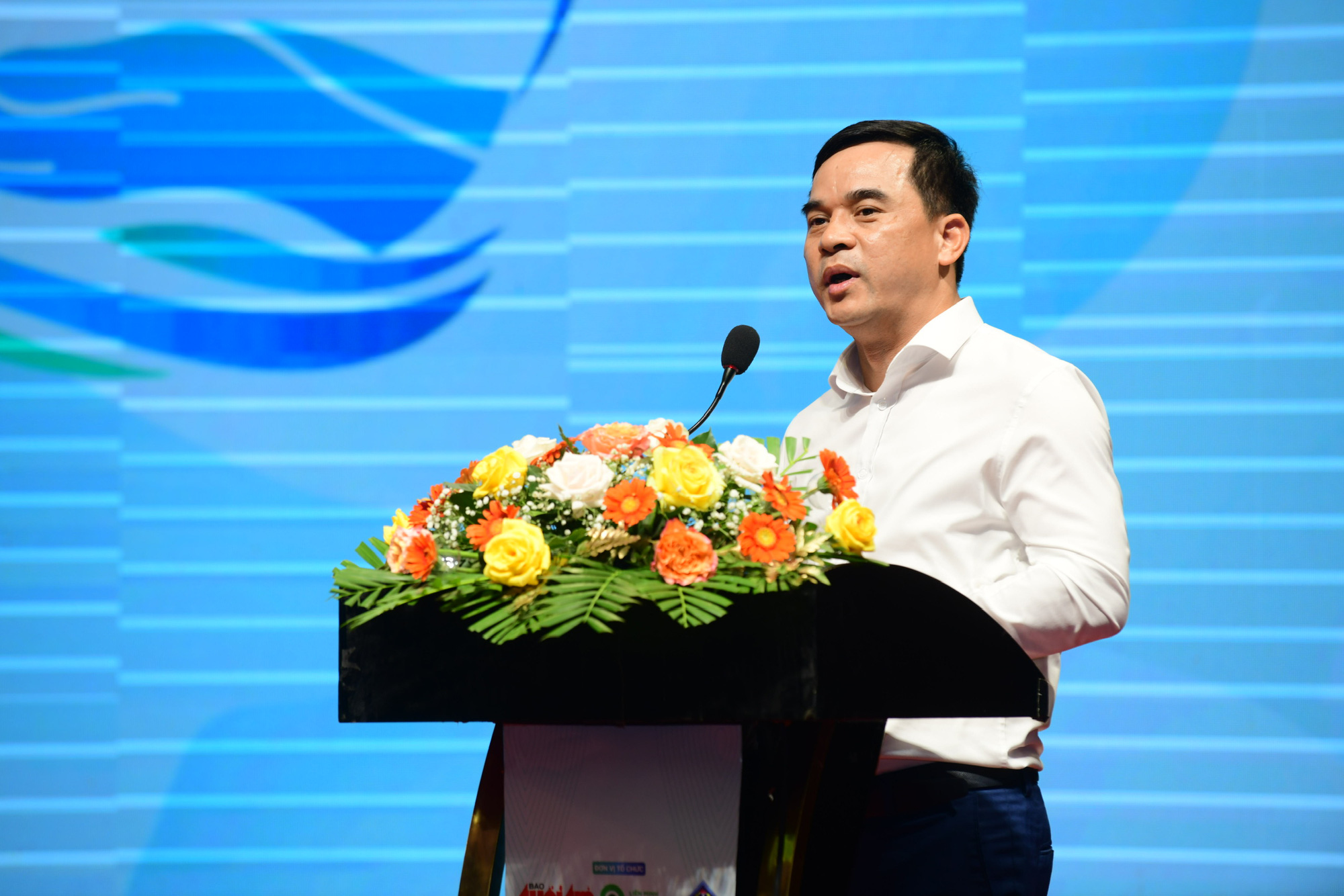The Mekong Delta region in southern Vietnam is facing a seemingly paradoxical situation: the more efforts made to resist saltwater intrusion, the more severe the intrusion becomes.
During the ‘Solutions on Water Resources in the Mekong Delta’ conference, organized by Tuoi Tre (Youth) newspaper in collaboration with the Ministry of Natural Resources and Environment and Can Tho University in Can Tho City on April 26, Assoc Prof. Dr. Le Anh Tuan, a senior lecturer in the Faculty of Environment and Natural Resources at Can Tho University, highlighted this situation as a critical issue.
“In the past, during the planning phase in the Mekong Delta, ancient civilizations devised vertical and horizontal canal systems across provinces like An Giang, Kien Giang, and Ca Mau,” Tuan said.
“They also established canal intersections such as Nga Nam [in Soc Trang Province] and Nga Sau and Nga Bay [in Hau Giang Province].
“However, paradoxically, as we attempt to mitigate salinity through structural interventions, the tidal energy fails to disperse and instead maintains its force, exacerbating salinity levels and driving them further inland.
“This phenomenon is evident when we close sluices to prevent salinity, inadvertently trapping polluted freshwater streams.
“This begs the question: Why does our struggle against salinity seem to worsen the problem?”
|
|
| Assoc Prof. Dr. Le Anh Tuan, a senior lecturer in the Faculty of Environment and Natural Resources at Can Tho University, speaks at the ‘Solutions on Water Resources in the Mekong Delta’ conference in Can Tho City, southern Vietnam, April 26, 2024. Photo: Quang Dinh / Tuoi Tre |
According to Tuan, the mismanagement of water resources has exacerbated drought and salinity in the Mekong Delta.
Highlighting the need for natural solutions, Dr. Tuan stressed the importance of water source security.
His proposed solutions include reducing industrial activities with high waste discharge, strengthening legislation to control water pollution, and implementing measures for transboundary water management, conservation, and rational use.
In addition, Dr. Tuan suggested restoring natural water retention capacity in low-lying areas, constructing flood water reservoirs and rainwater harvesting systems, establishing desalination plants, and reducing groundwater extraction.
Moreover, it is important to transition rice-growing areas to aquaculture, promote water-saving practices, and advocate the use of recycled water.
Besides, he emphasized sharing water source information widely and modernizing the water source monitoring system.
Key challenges
The ‘Solutions on Water Resources in the Mekong Delta’ conference is part of the Green Vietnam program initiated by Tuoi Tre.
The event saw the participation of numerous leaders from Can Tho City, Ca Mau Province, and representatives from various irrigation, environmental protection, cultivation, and plant protection departments from provinces and cities in the Mekong Delta.
Overall, more than 100 guests attended, including scientists, experts, researchers, entrepreneurs, authority officials, and farmers in the region.
Notably, experts from Israel, renowned for their advanced high-tech agricultural industry in the face of scarce water resources, also participated.
|
|
| Delegates attend the ‘Solutions on Water Resources in the Mekong Delta’ conference in Can Tho City, southern Vietnam, April 26, 2024. Photo: Quang Dinh / Tuoi Tre |
At the outset of the conference, journalist Tran Xuan Toan presented a clip documenting a survey trip by Tuoi Tre (Youth) newspaper on April 25, focusing on Lam Tuan Kiet, a 32-year-old resident of Dong Hung B Commune in An Minh District, Kien Giang Province.
In the video, Kiet detailed his struggles, including spending approximately VND2.2 million (US$86.40) per month on fresh water and the difficulties of storing and using salty water for daily needs. These challenges have negatively impacted his rice and crab farming efforts.
“Hundreds of thousands of farmers in the coastal areas of the Mekong Delta are grappling with severe drought and saltwater intrusion, mirroring the challenges faced by Kiet,” Toan said.
“The intense sunlight forces them indoors, rendering them unable to engage in productive activities.
“Despite their desire to cultivate, they find themselves hindered by these harsh conditions.
“Previously, discussions about the Mekong Delta often centered around its resilience to floods.
“However, the narrative has now shifted to adapting to drought and salinity.
“This shift underscores the urgency for Tuoi Tre, along with other agencies, experts, and local leaders, to advocate for solutions aimed at securing water sources, addressing the specific challenges of drought and salinity, and mitigating the broader impacts of climate change in the region.”
|
|
| Nguyen Hong Hieu, deputy director of the Department of Water Resources Management at the Ministry of Natural Resources and Environment, speaks at the ‘Solutions on Water Resources in the Mekong Delta’ conference in Can Tho City, southern Vietnam, April 26, 2024. Photo: Quang Dinh / Tuoi Tre |
During the conference, Nguyen Hong Hieu, deputy director of the Department of Water Resources Management at the Ministry of Natural Resources and Environment, highlighted the key challenges confronting the Mekong Delta today.
These include heavy reliance on surface water sources from neighboring countries, ongoing and proposed hydroelectric and water transfer projects, and the uneven distribution of surface water resources over both space and time.
Moreover, the region faces escalating impacts from climate change, characterized by more frequent droughts and increasingly severe saltwater intrusion.
Hieu emphasized the urgency of closely monitoring and updating warnings to forecast meteorological and hydrological developments, droughts, water shortages, and saltwater intrusion.
He stressed the importance of efficiently operating irrigation systems, actively storing water, promoting water conservation practices, and adapting crop structures to mitigate the impacts of drought and salinity.
Looking ahead, Hieu proposed long-term solutions, including prioritizing investments in industries aligned with the approved planning for the Mekong Delta region, focusing on economic development tailored to saltwater, brackish water, and freshwater ecological zones outlined in government plans and Resolution 120.
Like us on Facebook or follow us on Twitter to get the latest news about Vietnam!





















































